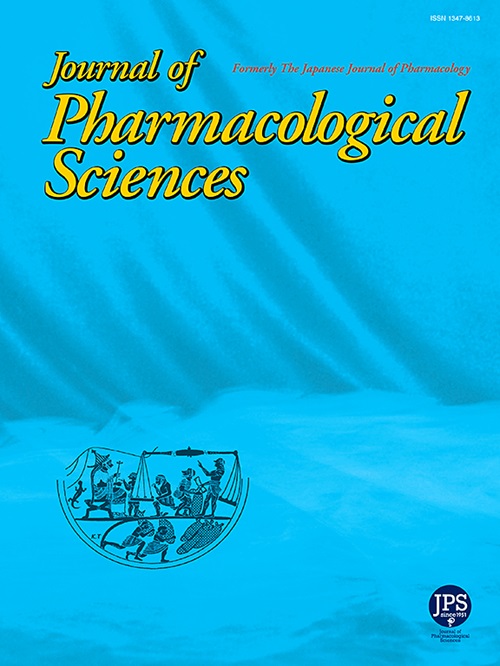The citrus flavonoid nobiletin prevents the development of doxorubicin-induced heart failure by inhibiting apoptosis
IF 2.9
3区 医学
Q2 PHARMACOLOGY & PHARMACY
引用次数: 0
Abstract
Background
The anthracycline anticancer drug doxorubicin (DOX) induces myocardial cell death and heart failure. The aim of the present study was to investigate whether nobiletin (NOB), a natural flavonoid isolated from citrus peel, has a protective effect against DOX-induced cardiotoxicity.
Methods and results
H9C2 cells were pretreated with 100 μM NOB and then treated with 1 μM DOX. An MTT assay revealed that NOB improved the decreased cell viability induced by DOX. A TUNEL assay showed that NOB treatment improved DOX-induced apoptosis in H9C2 cells. Western blotting indicated that DOX-induced increases in cleaved caspase-3 and -9 expression were significantly suppressed by NOB treatment. Motion field imaging of human iPS cell-derived cardiomyocyte sheets showed that NOB significantly suppressed a DOX-induced reduction of their contractile function. Next, to investigate the effect of NOB in vivo, DOX was intraperitoneally administered to mice. Echocardiography showed that oral administration of NOB reduced DOX-induced left ventricular systolic dysfunction, and a TUNEL assay showed that oral administration also inhibited apoptosis in the mouse heart.
Conclusions
These results indicate that NOB treatment suppressed DOX-induced cardiotoxicity by reducing apoptosis. Further study of the mechanism of this effect may lead to the development of a novel therapy for DOX-induced heart failure.
柑橘类黄酮皂素通过抑制细胞凋亡来防止阿霉素诱导的心力衰竭的发生
蒽环类抗癌药物多柔比星(DOX)可诱导心肌细胞死亡和心力衰竭。本研究的目的是研究从柑橘皮中分离的天然类黄酮nobiletin (NOB)是否对dox诱导的心脏毒性具有保护作用。方法与结果用100 μM NOB预处理sh9c2细胞,再用1 μM DOX处理sh9c2细胞。MTT实验显示,NOB改善了DOX诱导的细胞活力下降。TUNEL实验显示,NOB处理可改善dox诱导的H9C2细胞凋亡。Western blotting结果显示,NOB处理可显著抑制dox诱导的cleaved - caspase-3和-9表达的增加。人类iPS细胞衍生的心肌细胞片的运动场成像显示,NOB显著抑制dox诱导的收缩功能的降低。接下来,为了研究NOB在体内的作用,小鼠腹腔注射DOX。超声心动图显示口服NOB可减轻dox诱导的左心室收缩功能障碍,TUNEL实验显示口服NOB还可抑制小鼠心脏细胞凋亡。结论NOB可通过减少细胞凋亡抑制dox诱导的心脏毒性。对这种作用机制的进一步研究可能会导致dox诱导心力衰竭的新疗法的发展。
本文章由计算机程序翻译,如有差异,请以英文原文为准。
求助全文
约1分钟内获得全文
求助全文
来源期刊
CiteScore
6.20
自引率
2.90%
发文量
104
审稿时长
31 days
期刊介绍:
Journal of Pharmacological Sciences (JPS) is an international open access journal intended for the advancement of pharmacological sciences in the world. The Journal welcomes submissions in all fields of experimental and clinical pharmacology, including neuroscience, and biochemical, cellular, and molecular pharmacology for publication as Reviews, Full Papers or Short Communications. Short Communications are short research article intended to provide novel and exciting pharmacological findings. Manuscripts concerning descriptive case reports, pharmacokinetic and pharmacodynamic studies without pharmacological mechanism and dose-response determinations are not acceptable and will be rejected without peer review. The ethnopharmacological studies are also out of the scope of this journal. Furthermore, JPS does not publish work on the actions of biological extracts unknown chemical composition.

 求助内容:
求助内容: 应助结果提醒方式:
应助结果提醒方式:


